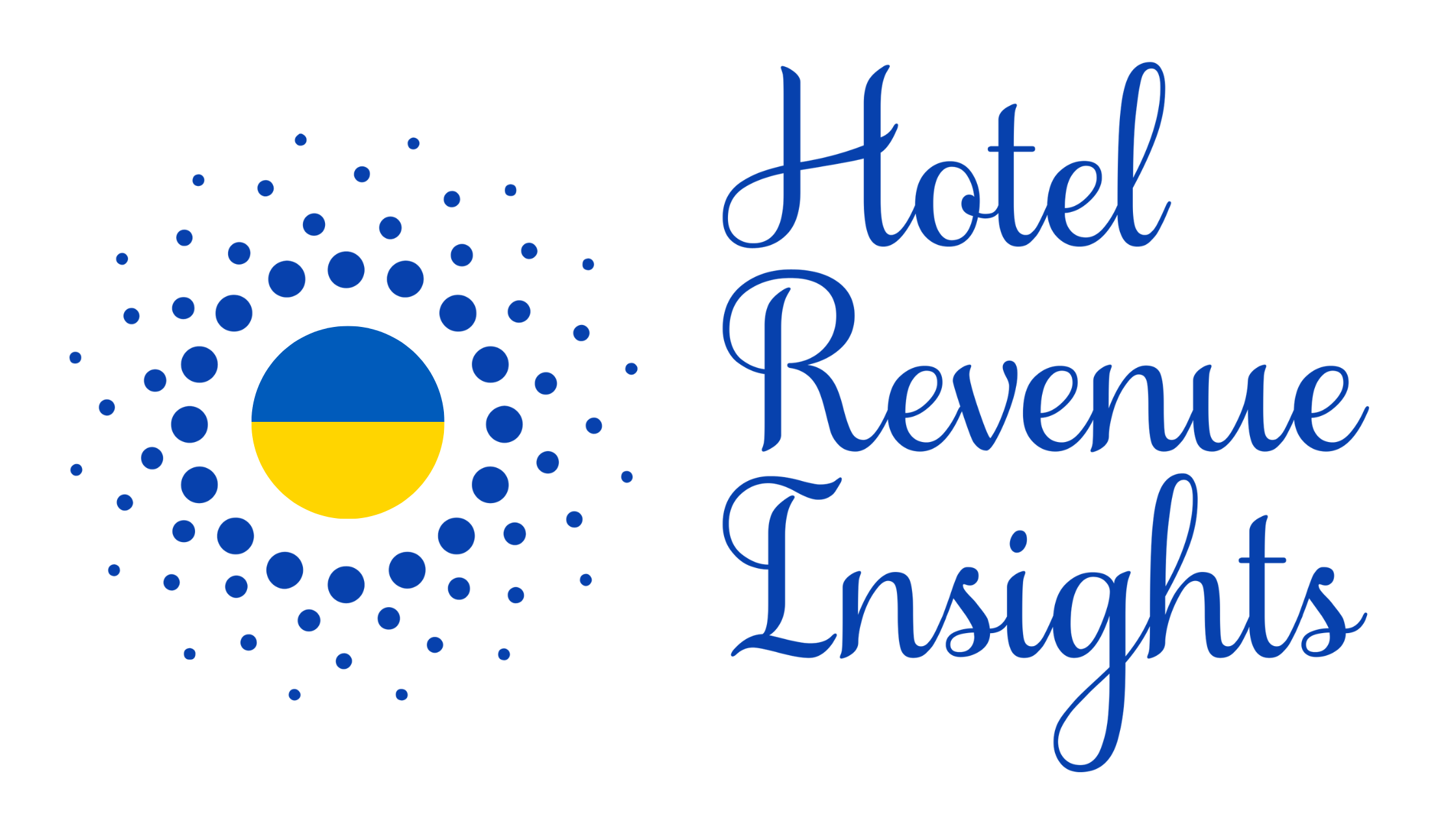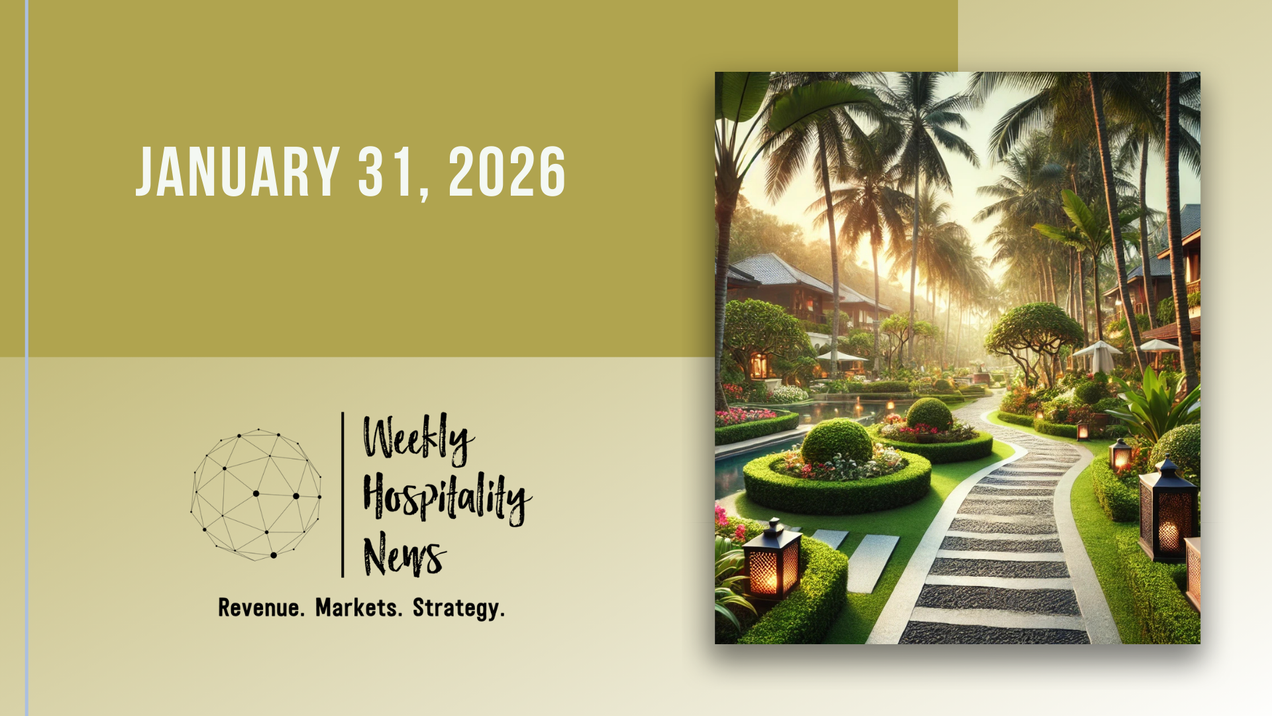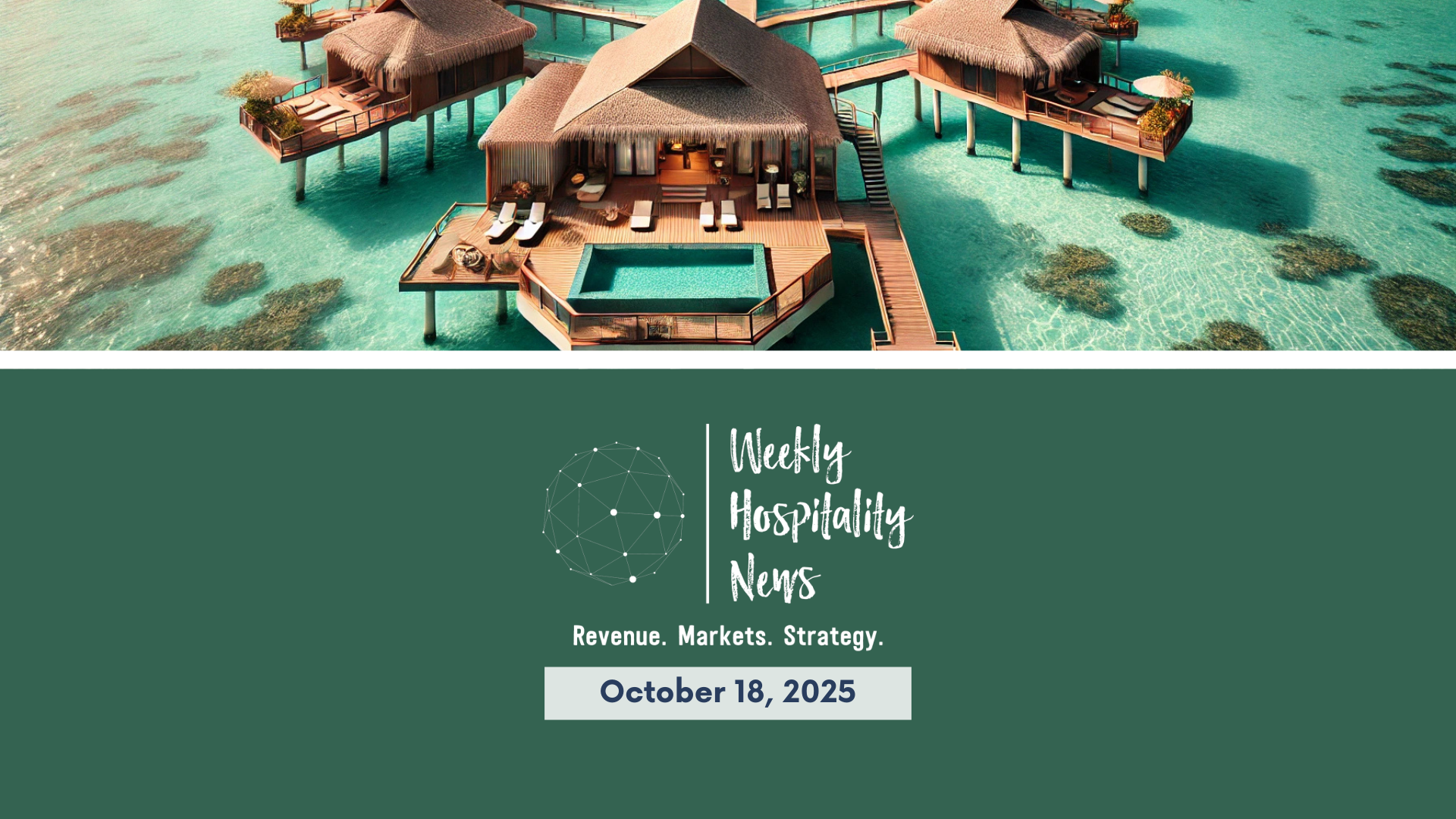
Weekly Insights. October 18, 2025
Best hospitality industry articles focused on 💵revenue, 📊markets, and 🎯strategy (Oct 12 - Oct 18, 2025).
The personalization gap: Online vs. Offline
Hotels have invested heavily in digital personalization, from tailored offers and curated booking paths to guest recognition online. Yet when travelers arrive on property, the experience often falls short of those expectations. The handoff between digital profiles and on-site service remains a weak link, leaving many guests wondering why the "personal touch" stops at the front desk.
So, a question to our IT experts: why does personalization work so well online but fail offline? What role should technology play in closing this gap, and how can hotels ensure that data collected digitally translates into a more personal and consistent on-property guest experience?
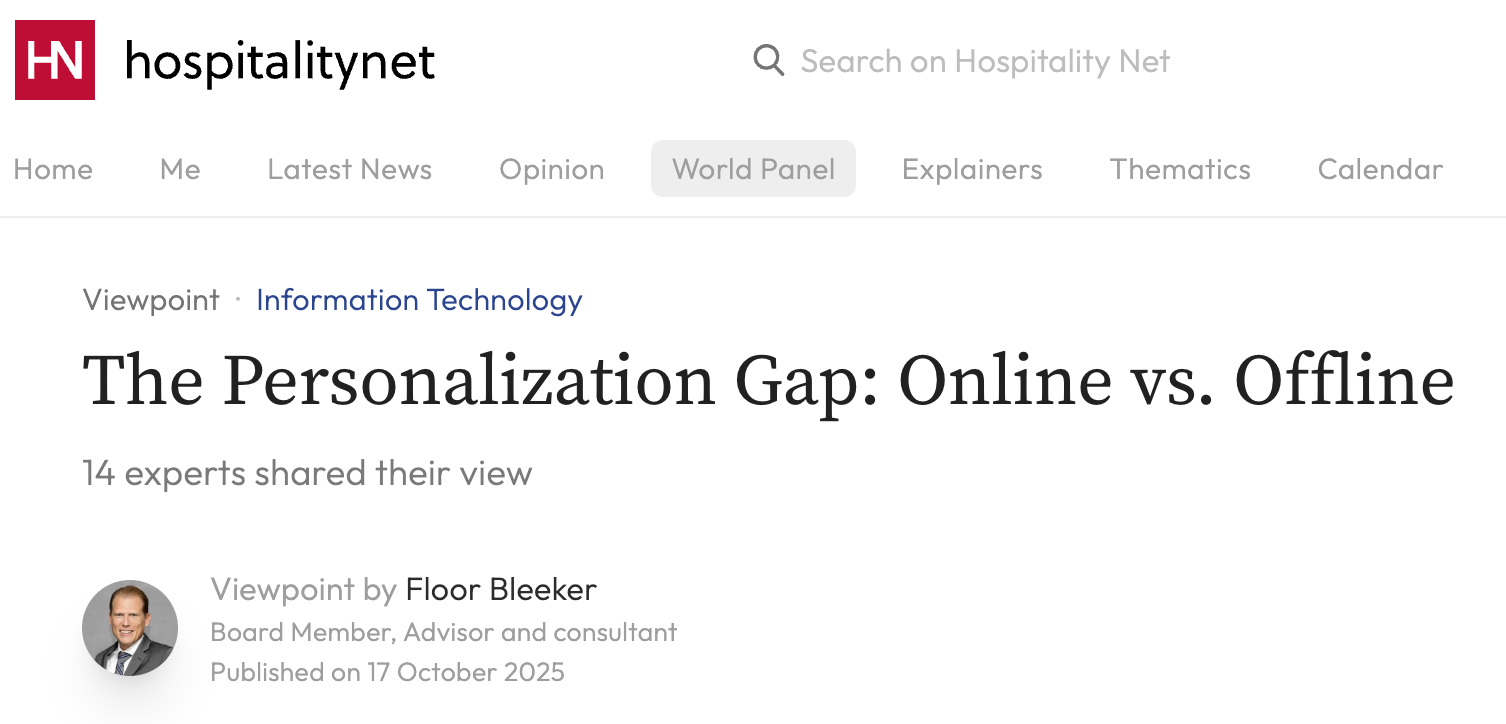
Five key negotiation skills every hospitality leader should master
The article explains why negotiation is a daily competency in hospitality and outlines five core skills leaders should master to build value and stronger partnerships. It dispels common myths and emphasizes preparation, active listening, creating mutual gains, managing emotions during tense moments, and closing with clear commitments and follow up so agreements stick in real guest, supplier, and team interactions.

Beyond the easy answer: Why pricing alone isn’t a strategy
The article argues that pricing alone is not a strategy and that results come from linking pricing to demand insights, segmentation, packaging, and distribution. Smart revenue plans weigh more than just rate by factoring in length of stay, demand across dates, ancillary spend, and displacement cost before allocating inventory.

Is your hotel demand forecast stuck in the past? Why relying on historical data could be costing you money
The article explains how to forecast hotel demand and use those forecasts to make better pricing, staffing, and inventory decisions. It covers the data inputs to track such as historical patterns, on the books pace, market signals, and local events, outlines common methods from simple trend analysis to machine learning, and shows how to segment by channel and length of stay to get more accurate results. It recommends measuring accuracy with clear metrics, automating routine steps in an RMS, and running scenarios so teams can react quickly and turn forecasts into revenue and profit.

Chat as new influencer
Sabre argues that conversational AI will become a new distribution channel for travel, closing the gap between social inspiration and actual booking by letting travelers plan and purchase trips through natural chat and voice. The whitepaper says agentic AI can personalize complex, multi-component itineraries in real time, turning a dialogue into checkout, and stresses that trust, data governance, and explainability will be critical as this model scales.
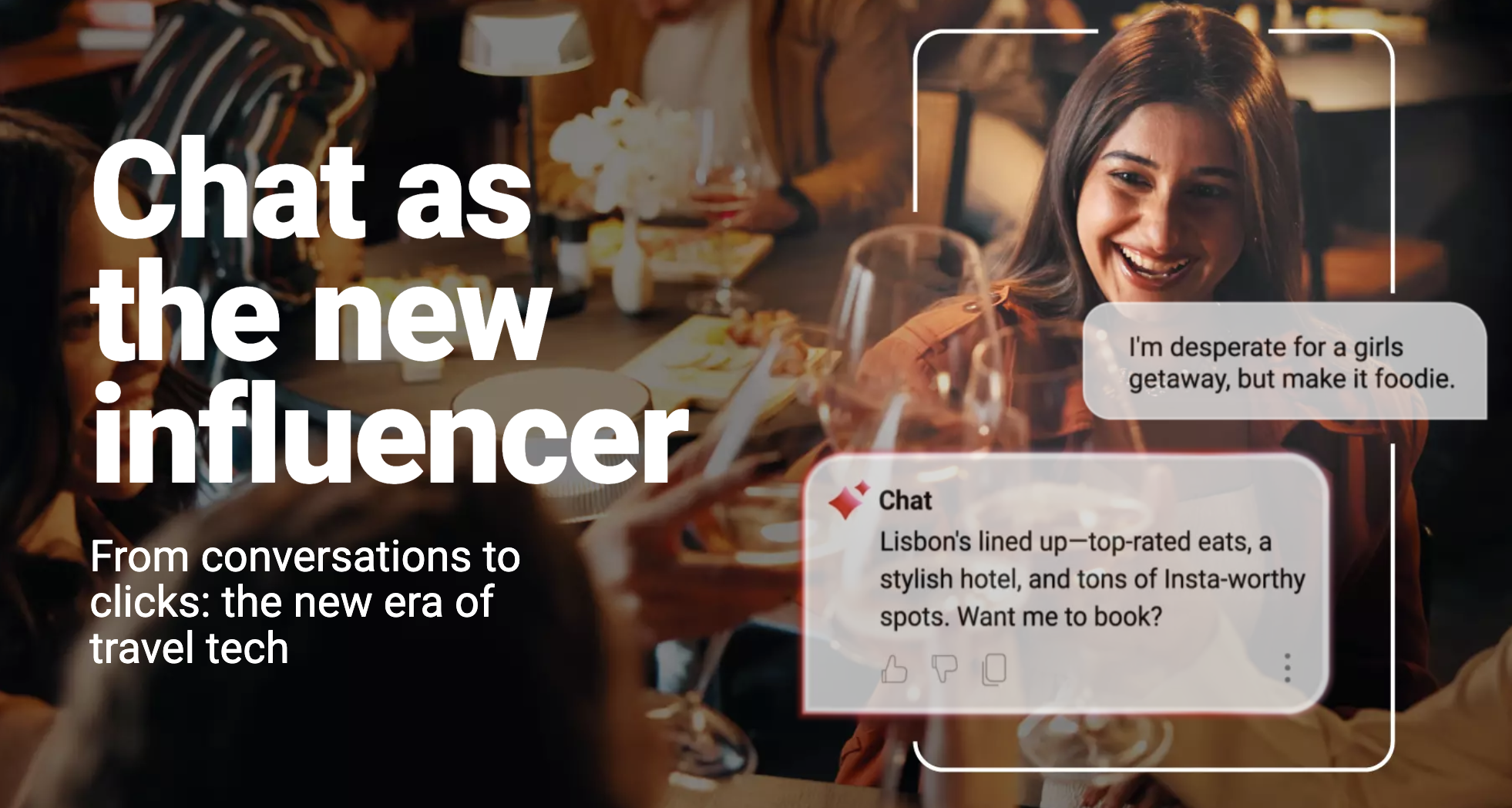
Ghost booking: How to reduce no show hotel bookings
The SiteMinder article explains how to cut hotel no shows by pairing clear policies with automation. It recommends tightening cancellation and guarantee terms, taking deposits or secure card validations, sending timely reminders, and keeping availability synced across channels so empty rooms can be resold quickly. It also stresses using a central platform to manage cancellations and confirmations, reduce manual work, and protect revenue.
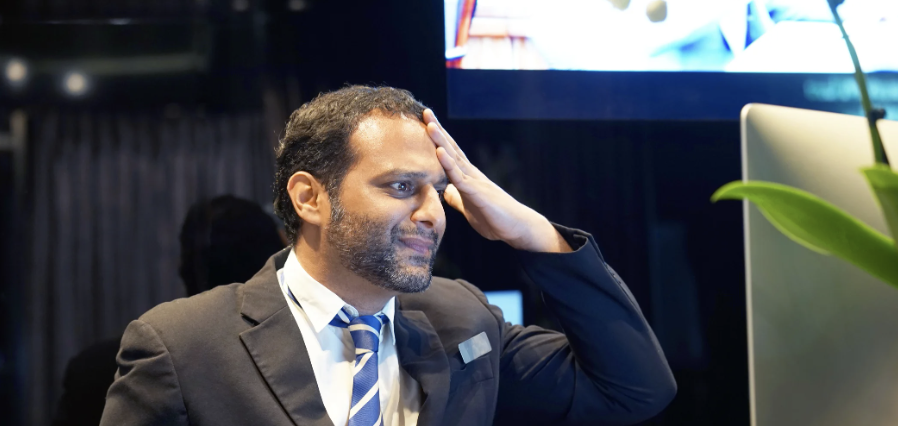
Ditch discount blasts: Reward high-value hotel guests
The article urges hotels to stop blasting blanket discounts and instead use first party data to identify and reward high value guests. It recommends segmenting by behavior and lifetime value, personalizing offers and perks that feel exclusive, and using CRM and marketing automation to deliver the right message at the right time. By protecting rate integrity and measuring incremental revenue, hotels can grow loyalty and profit without racing to the bottom on price.

Follow on LinkedIn
